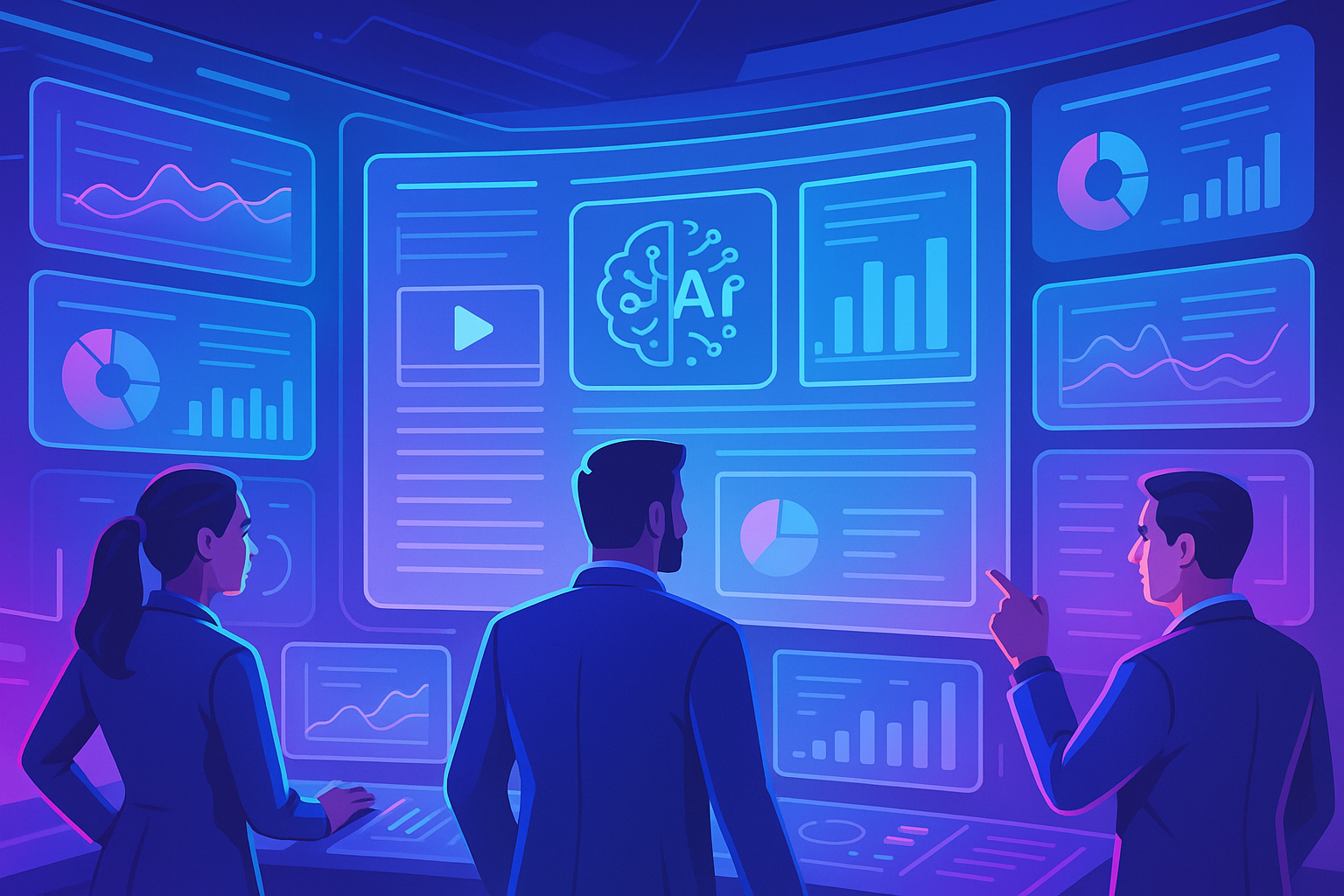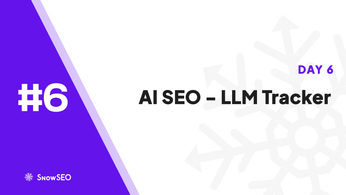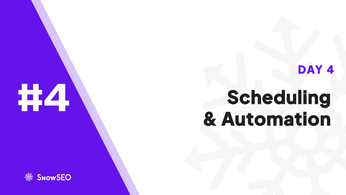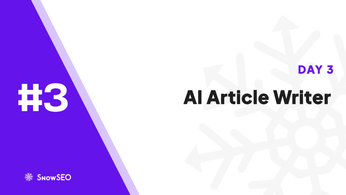
Proven Content Generation Strategies for 2025
Table of Contents
Discover the transformative content strategies shaping the future and setting ambitious brands apart. In 2025, attention spans are shorter, algorithms are smarter, and audiences expect hyper-personalized experiences on every platform. Yet most marketers still rely on playbooks written for yesterday’s internet, watching engagement slide while competitors surge ahead.
With the rapidly evolving digital landscape, traditional content strategies are no longer sufficient. Static blog calendars, generic social posts, and one-size-fits-all funnels can’t keep pace with AI-driven search, conversational interfaces, and immersive micro-formats dominating feeds.
This guide unpacks proven strategies to revolutionize your content marketing in 2025. You’ll learn how to blend machine learning insights with human creativity, leverage predictive topic modeling, and orchestrate omnichannel storytelling that converts. Backed by insights from industry leaders and emerging trends, each tactic is actionable, measurable, and designed to future-proof your brand’s voice-so you can captivate audiences, slash bounce rates, and drive sustainable growth.
The Evolution of Content Marketing in 2025
Consumers and algorithms have grown up together. By 2025, content marketing strategies 2025 hinge on hyper-relevance, zero-click satisfaction, and values-driven storytelling. Brands that package insight in snackable, voice-friendly formats dominate both search snippets and smart-speaker answers.
Key Changes in Consumer Behavior
- Micro-moments now last seconds, forcing creators to front-load value.
- 68% of Gen Z refuses to share data unless benefits are clear.
- Social proof beats brand promise; peer duets and stitches outperform polished ads.
Tip: Pair every insight with a community prompt to spark user-generated amplification.
New Technologies in Content Delivery
The tool stack has shifted from “post and pray” to predictive orchestration.
- Generative AI turns a single idea into text, audio, and holographic assets in minutes.
- 5G-enabled edge rendering streams interactive AR blog posts on demand.
| Emerging Tech | Practical Use | Maturity |
|---|---|---|
| Spatial audio blogs | Hands-free commuting learning | Growing |
| Quantum-safe analytics | Privacy-first segmentation | Early |
Also Read: 2025’s Latest SEO & AI Techniques Revealed
AI-Driven Content Marketing Strategies
Artificial intelligence has shifted from a novelty to the beating heart of modern campaigns. Marketers no longer ask whether to deploy AI-driven content marketing but how to scale it responsibly and profitably.
AI Tools for Content Creation
Smart platforms act like always-on creative partners, turning briefs into polished assets in minutes.
- Generative writing assistants draft SEO-friendly articles, podcast scripts and even social captions that mirror brand voice.
- Visual synth tools inside Canva and Adobe Firefly churn out banner variants so teams A/B test concepts the same afternoon.
- Insight engines such as BuzzSumo surface trending questions and gaps, then auto-recommend outlines and keywords.
Tip: Pair generative copy with human editors who inject storytelling flair and compliance checks. This hybrid workflow maintains authenticity while slashing production hours.

Automating Content Personalization
Once content exists, machine learning steps in to decide who sees which version, on what channel, and at what moment. According to Gartner’s forecast, 80 % of marketers risk abandoning personalization by 2025 due to data and ROI challenges-proof that execution, not intent, determines success.
Successful teams anchor automation on three pillars:
- Unified data layer
- Merge CRM, web, and in-app behavior into a privacy-compliant profile.
- Real-time decision engine
- Models predict next-best content within 200 ms, ensuring zero friction.
- Dynamic creative library
- Modular headlines, images, and CTAs assemble on the fly for each user.
McKinsey reports that brands mastering these pillars capture 5-15 % incremental revenue and cut acquisition costs up to 50 % through 2025 future-ready personalization insights.
| Automation Layer | Key Metric | Recommended AI Tool |
|---|---|---|
| Data unification | Match rate | Segment, Snowflake |
| Decisioning | Time to serve | Salesforce Einstein |
| Creative assembly | Variant yield | Hootsuite Composer |
Warning: Over-personalization can feel creepy. Cap frequency and offer clear opt-outs to preserve trust.
With intelligent creation pipelines and laser-focused distribution, AI turns content from a cost center into a compounding asset-provided marketers keep humans in the loop to steer strategy and ethics.
Also Read: Top 7 Content Generation Best Practices Revealed
Measuring Success in Content Marketing
Determining if your storytelling is moving the revenue needle starts with the right content marketing metrics – not a vanity-like counter. Below is a pragmatic two-step framework modern teams rely on.
Integrating Data Analytics
Great analytics turns raw clicks into board-room language.

| Metric | Why It Matters | Real-Time Tool |
|---|---|---|
| Revenue-attributed pipeline | Direct link between content and sales | HubSpot, Salesforce Datorama |
| Customer lifetime value (CLV) | Signals retention quality | Mixpanel, Hootsuite Impact |
| First-party data capture rate | Future-proofs targeting in a cookieless world | Segment CDP, Mailchimp |
Tip: Assign a single source of truth dashboard so writers, designers, and sales leaders speak the same numbers.
- Centralize raw data in a privacy-compliant CDP.
- Feed the CDP into visualization layers like Looker or Power BI for accessible storytelling.
- Review metrics during weekly sprints; pivot content angles instead of waiting for quarterly post-mortems.
According to Deloitte’s 2024 Global Marketing Trends, 60 % of large brands will merge content KPIs with zero-party data by 2025, making revenue dashboards non-negotiable.
Predictive Metrics for Future Trends
Once descriptive analytics hums, shift to foresight:
- Predictive lead quality – train models on historic engagement depth to forecast pipeline value.
- Churn-likelihood scoring – surface content gaps before customers disappear.
- Topic velocity – mine BuzzSumo trends to spot surge keywords 30 days earlier than competitors.
90 % of marketers now view AI-driven forecasting as “the key to beating content fatigue.”
A recent Content Marketing Institute benchmark notes top B2B performers already track an average of 5.7 metrics, with spend on analytics tools up 34 % year-over-year. Combine these insights with Canva’s real-time design analytics or Hootsuite’s sentiment graphs to tighten the feedback loop and keep every asset relentlessly accountable.
Ready to put these 2025 content strategies into overdrive? SnowSEO makes it effortless, fusing AI-powered keyword research with hyper-personalized content generation that aligns with every tactic you’ve just learned. Instead of juggling half-a-dozen disconnected tools, you’ll automate the entire SEO pipeline – from planning to CMS publishing – inside one intuitive dashboard.
Gain real-time insights on how your articles perform across Google, ChatGPT, Grok and more, while competitor monitoring exposes fresh gaps you can conquer first. With 24x7 AI-backed expertise, SnowSEO continuously refines your content so it ranks and resonates, slashing production costs and boosting ROI.
Apply these strategies to lead in content marketing:
- Claim your free SnowSEO trial at https://snowseo.com.
- Connect your CMS in minutes and import existing posts.
- Let SnowSEO surface new keywords, generate optimized drafts, and schedule automated publishing.
Take the next step today and watch your organic growth accelerate.
Frequently Asked Questions
Q1: How much time should I allocate to AI-driven content planning?
Most teams see results when they block a two-hour sprint on Monday to feed prompts, refine outlines, and schedule drafts. Consistency matters more than volume: a fixed weekly slot trains both the algorithm and your stakeholders.
Q2: Do AI tools replace my creative team?
No. Think of AI as a tireless research assistant. It drafts, clusters data, and predicts gaps, while humans inject brand voice, ethics, and the witty hook that keeps readers scrolling. The partnership frees creatives for higher-order storytelling.
Q3: What metrics prove my new strategy is working?
Track engagement velocity first: clicks within the first hour signal topic-audience fit. Layer in average scroll depth, save-rate on social, and assisted conversions. When all four rise together for three consecutive campaigns, your framework is paying off.
Q4: How can small brands afford advanced content tech?
Leverage freemium stacks. Pair ChatGPT’s free tier with Canva’s templates, BuzzSumo’s five daily searches, and Hootsuite’s limited plan. Automate one channel at a time, reinvest the saved hours into ad credits, and scale tool subscriptions only after revenue follows.
Conclusion
The evidence is unmistakable: content success in 2025 hinges on intelligent automation, immersive formats, and relentless experimentation. According to World Economic Forum projections, three-quarters of companies will deploy AI-powered tools within the marketing function by mid-decade, while Gartner’s forecast places “operationalised AI” in 70 % of organisations by the same horizon. These figures confirm what progressive brands already know: automated insights and generative creativity are no longer optional extras.
Key takeaways
- Adopt AI now to secure a lasting competitive advantage.
- Invest in visual and interactive content that keeps audiences engaged longer.
- Monitor emerging trends continuously, pivoting before rivals do.
Call to action
Apply these strategies decisively to move from content clutter to category leadership.
Next steps
- Audit your existing workflow to spot gaps in data, talent, and tooling.
- Introduce AI solutions for ideation, personalisation, and performance tracking.
- Review progress quarterly, refining tactics as the landscape evolves.





